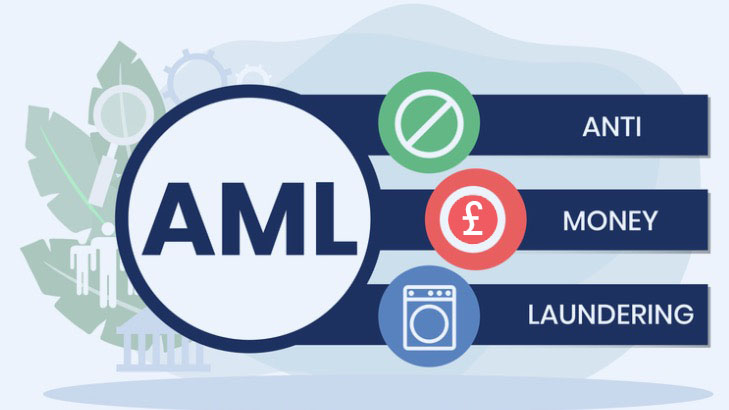
Virtual Event
Fundamentals of Anti-Money Laundering
Get Tickets
Free – £120.00
Virtual Event
Fundamentals of Anti-Money Laundering
Get Tickets
Free – £120.00
As an Org Plus Plan subscriber, you have unlimited access to the On Demand training library of pre-recorded training videos. You can watch these as many times as you like at your own leisure. Questions can be posed to trainers during and after the video, with responses being provided within 2 working days. Ensure you’re logged into your account to access.
For non-subscribers and all other plan subscribers, access can be purchased separately.
Fundamentals of Anti-Money Laundering
Speaker: Jo Morris
Length: 2 Hours
Published November 23, 2023
Last Updated on November 24, 2023
Who is this training for?
The Fundamentals of Anti-Money Laundering online training workshop is for Solicitors, Lawyers, Accountants, Compliance Officers, COFA, COLP, MLRO, MLCO, Legal Accounts Professionals, Legal Cashiers, business support and anyone new to the legal profession that has any involvement in compliance and anti-money laundering.
Purpose of this training?
Our responsibilities under the Money Laundering Regulations (MLR) are growing and changing all of the time. Many people in different departments in law firms are finding themselves involved in trying to stop criminals using us and our firms to launder the proceeds of crime. The SRA are very proactive in their fight against Anti-Money Laundering (AML) and are visiting firms undertaking audits to look at our approach to dealing with Anti-Money Laundering and Counter-Terrorism Financing (CTF).
This online training workshop is designed to give an introduction to Anti-Money Laundering and Counter Terrorism Financing in the legal sector. It is ideal for new starters, those returning to the legal profession and as a refresher for those who want to remind themselves of the key points.
This live and interactive session will cover the following:
- Introduction
- What is AML and CTF
- Who launders money and why do they use the legal sector
- Key legislation – Proceeds of Crime Act 2002 (POCA) and the Terrorism Act 2000 – what are the principal offences
- Risk assessments we must have in place
- Key regulations around
- Client Due Diligence (CDD)
- Enhanced Due Diligence (EDD)
- Simplified Due Diligence (SDD)
- Politically Exposed People (PEP)
- Source of funds and source of wealth
- High risk jurisdictions
- The Money Laundering Reporting Officer (MLRO) and Money Laundering Compliance Officer (MLCO) – their role and responsibilities
- Reporting of suspicions and the National Crime Agency (NCA)
- The SRA’s position
Practice notes and training sessions represent the Association of Legal Compliance & Accounts’ view of good practice in a particular area. They are not intended to be the only standard of good practice that firms can follow.
Practice notes and training sessions are not legal advice, and do not necessarily provide a defence to complaints of misconduct or poor service. While we have taken care to ensure that they are accurate, up to date and useful, we will not accept any legal liability in relation to them.
Frequently Asked Questions
Why Online
It’s really simple:
- Reduced cost
- Can be taken anywhere on any device – no travel time or cost
- Shorter and more efficient than face-to-face
- Live and interactive
- Recorded and can be replayed at your leisure
Online – the Cons?
At present, many training providers are offering online training services, under the guise of webinars – some live, some pre-recorded. The live mainly consisting of the trainer talking with little or no engagement with the delegate – this is a common perception as to what a webinar is. For some, this can feel very lonely and isolated. It requires strong, self-motivation and time management skills. The learner’s mood is exceptionally difficult for the trainer to read – a good trainer will read body language within the room. Also, if you have a technical issue, then accessing the online learning resources can become difficult. Where there is no accreditation, the quality of the course content can come into question.
Preview
Our online workshops are delivered via Zoom. You can access the session via your computer, tablet or mobile device.
Details on how to join the online session will be provided the day before the training goes live.
We recommend you run a system test and check your internet speed by clicking HERE.
If your firm prevents you from using Zoom, please contact us.
There is no requirement to attend live but we advise that you do where you can as this will be the best experience for you. Don’t forget, you can pose questions live to the trainer and join in with the interaction when you attend live. Also, be mindful that you have access to the recording for 30 days, after which, it will no longer be available.
Not at all. We prefer it if candidates do as it makes the training more engaging but it is not mandatory to turn your camera or microphone on during the training session.
If you don’t have a microphone, you can still pose questions using the chat facility.
